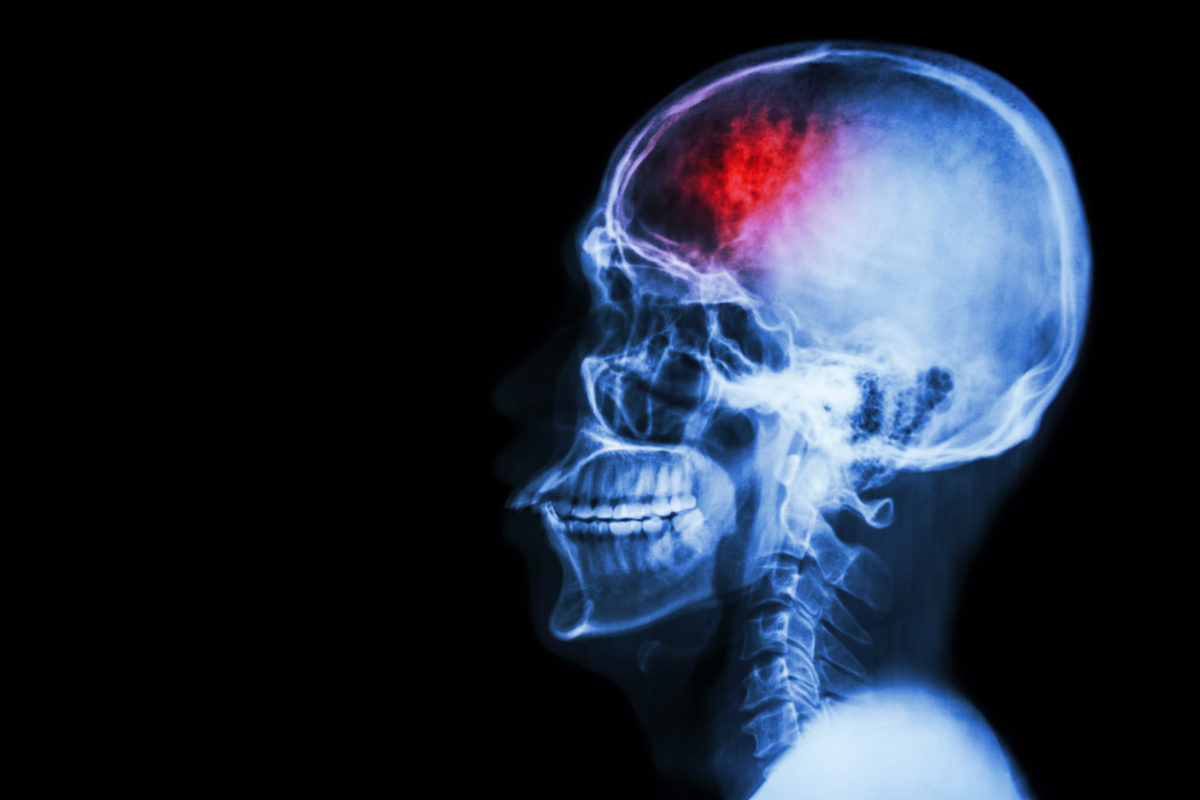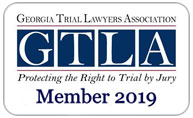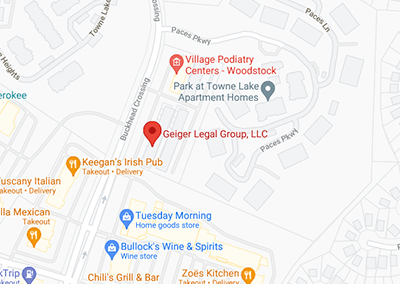Common Causes of TBI

Traumatic brain injuries (TBIs) send nearly 3 million people to the hospital annually, according to the Centers for Disease Control and Prevention (CDC). Of these hospital visits, over 55,000 people die from TBIs each year, and nearly 300,000 others must be admitted to the hospital.
Many different types of accidents cause these injuries, including car wrecks, assaults, sporting accidents, shaken baby syndrome, military attacks, abuse, and falls.
No matter what caused your accident, you might be entitled to significant compensation if you are suffering from a TBI or other serious injury through no fault of your own. At Geiger Legal Group, LLC, we’re here to help you fight for justice and pursue the maximum compensation you deserve for your injuries. We have a proven track record of helping people just like you get the results that matter after tragedies like accidents that cause TBIs.
At Geiger Legal Group, LLC, we have over 35 years of experience serving clients throughout northern Georgia. As demonstrated by our client reviews, our knowledgeable Canton brain injury attorneys are dedicated to helping you achieve the best possible outcome for your case while also providing you with the outstanding personalized attention you deserve. Our focus is on helping people, not on racking up high numbers of clients.
If you suffered a TBI in an accident that wasn’t your fault, contact the five-star-rated legal team at Geiger Legal Group, LLC, today, and let us work for you. To get started, get your free legal consultation by calling us or contacting us through our live online chat.
Motor Vehicle Collisions
Motor vehicle collisions involving pedestrians or cyclists, and accidents between two or more vehicles – such as car crashes, motorcycle collisions, and commercial truck wrecks – are some of the leading causes of brain injuries. Although every accident is unique, these injuries range can range from fatal to more minor, depending on the details of the accident.
Many brain injuries leave victims with debilitating mental and physical impacts. Recovering from these injuries often takes weeks, months, or years for patients to recover. Many victims never fully recover.
Some of the most common types of brain injuries include concussions, hematomas, skull fractures, and contusions. More broadly, these injuries typically fall into the categories of either closed or open head injuries.
With open head injuries, the skull or scalp is usually pierced or broken. These wounds can seriously affect brain function. Closed head injuries don’t typically involve a breach of the innermost layers that protect the brain, yet they can also seriously impact thinking, reasoning, and motor abilities.
A range of parties might be liable for motor vehicle collisions that result in TBIs. The other driver involved in the crash might hold responsibility. The vehicle’s manufacturer might also hold liability if a defectively manufactured vehicle or car part contributed to the wreck or made the injury more severe.
If the driver who caused the wreck and resulting brain injury were on-the-job at the time of the accident, then their employer might also be liable. In addition, the people who loaded the cargo on the commercial vehicle or those who maintained the vehicle might hold responsibility. If a dangerous road condition contributed to the accident, then a government entity might hold responsibility.
Slips, Trips & Falls
Falls are the number one cause of traumatic brain injuries for people of all ages, although elderly people and young children are the most vulnerable in these types of accidents, according to the Mayo Clinic. Falls are the cause of over 80% of emergency room visits for TBIs for people who are 65 or older and around half of these types of visits for children, the CDC reports
Traumatic brain injuries can happen in a range of accidents, such as falls from tall heights and slip and fall accidents. Causes of these kinds of accidents include everything from faulty safety equipment, to improper training, to spills on the floor that staff doesn’t clean up promptly, and more.
Brain injuries can result from falls at a wide variety of locations, such as:
- Commercial facilities like shops, bars, restaurants, grocery stores, casinos, hotels, and amusement parks
- Private homes
- Construction sites, office buildings, and other worksites
- Public facilities, including parks and government buildings
- Nursing homes and long-term care facilities
- Apartments, condos, vacation homes, and other rental facilities
Medical Errors
Errors in surgery, with medication, or in other medical procedures or treatments can result in significant brain damage. For example, a negligent mistake or carelessness by a physician, their staff, or a healthcare facility can cause a brain bleed, swelling, tearing of the brain tissue, or any other kind of brain injury that might affect a patient for the rest of their life.
Victims often find it difficult to prove medical errors on their own and get the full compensation they’re owed. However, a skilled brain injury attorney can help shoulder this burden by taking care of all the details of your case. They can listen to your story about the medical error that might have caused your brain injury and help you understand your legal options.
If you decide to work together, your attorney can build a legal strategy tailored to your personal needs and launch an independent investigation into your case. They can also collect the evidence necessary to support your claim and negotiate with insurance on your behalf to help you fight for the full compensation you deserve. If the insurance company won’t cooperate, then your attorney can help you file a lawsuit for your TBI and help you seek the maximum compensation that you’re owed.
Sports and Recreational Injuries
Whether you are playing sports for fun or it’s part of your job, high-impact athletic activities can lead to TBIs and other serious brain and head injuries. Sports such as football, boxing, and hockey can cause TBIs when players forcefully hit each other with their own bodies or athletic equipment.
Athletes can also suffer TBIs from sports such as diving, gymnastics, or horseback riding, where they might fall and strike their head on the ground, sporting equipment, the edge of a diving board, or any other surface.
Some of the symptoms that players might experience after a brain injury include frequent headaches, loss of concentration, neck pain, confusion, tinnitus, nausea, confusion, and a range of other signs. With children who are too young to properly express themselves, it’s often difficult to detect TBIs. However, some common symptoms in these younger athletes might include issues like changes in eating habits, fatigue, excessive crying, or unusual changes in development.
Longer-term impacts that athletes might experience from TBIs include changes to cognitive or communication skills, such as difficulty speaking, reasoning, making decisions, remembering, or learning new information. They might also suffer from physical complications like paralysis, seizures, or vertigo.
In addition, TBI victims often experience long-term consequences in their emotional reactions, as well as other impacts on behavior, such as outbursts of anger, depression, and difficulty in social situations.
Work/Construction Site Accidents
While workers in construction, manufacturing, and industrial sites are often more susceptible to brain injuries, accidents in any type of work setting can result in a TBI. For instance, office workers can easily trip over an open desk drawer or fall off of a chair while trying to reach something.
If a work-related accident leaves a victim with a traumatic brain injury, the type of compensation that the worker can receive will depend on what caused the injury, as well as other details surrounding the accident.
For example, if an employee suffers brain damage after a transportation accident at a job site in the course of their daily work, then they will likely be eligible for workers’ compensation to help cover their losses from the accident. This compensation will typically cover the worker’s medical expenses related to the accident, partial replacement of their wages while recovering from their injuries, as well as other workers’ compensation benefits.
On the other hand, if a third-party caused the worker’s accident and the resulting TBI, then an additional option that the employee has to recover compensation would be a personal injury claim. In this type of case, the victim might be eligible to recover compensation for their medical costs, wage replacement, pain and suffering, disability accommodations, and a range of other damages.
Contact a Traumatic Brain Injury Attorney Today
If you suffered a TBI in an accident that was someone else’s fault, Geiger Legal Group, LLC, is prepared to help you fight for your legal rights. Call us or contact us online now for a free claim review and discussion about your best legal options.



































